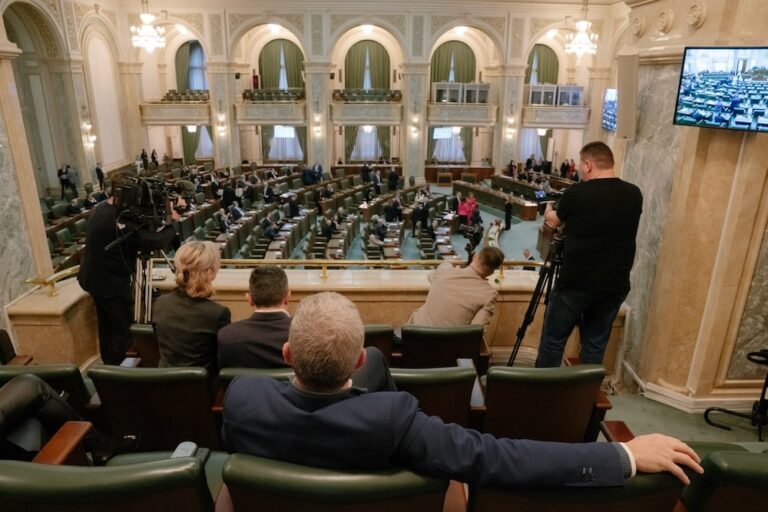(RSF/IFEX) – RSF has expressed concern over revelations of a secret service decision to tap the phones of two Romanian journalists working for foreign media and said to be suspected of “espionage”. The admission was made to the Mediafax news agency on 26 January 2005 by Radu Timofte, Director of the Romanian intelligence services (SRI). […]
(RSF/IFEX) – RSF has expressed concern over revelations of a secret service decision to tap the phones of two Romanian journalists working for foreign media and said to be suspected of “espionage”.
The admission was made to the Mediafax news agency on 26 January 2005 by Radu Timofte, Director of the Romanian intelligence services (SRI). Timofte refused, however, to reveal the identity of the journalists or for which media outlets they worked.
“The protection of sources is a principle that is intrinsic to press freedom, too essential for there to be any exceptions. Romania must respect European law in this matter, particularly Article 10 of the European Convention on Human Rights,” said RSF.
“It should also show transparency over phone tapping and put an end to this culture of secrecy that belongs to another age,” the organisation said in a letter to Justice Minister Monica Macovei.
The case was made public just two days after the Bucharest daily “Ziua” published an October 2003 message from Interior Ministry Head of Intelligence Virgil Ardelean, asking for an “analysis of the opportunity to tap phones at Mediafax and AM Press.”
The document was sent to the prosecutor general’s anti-corruption office (PNA). Ardelean explained that he needed to check reports about an inspector who had “revealed information about investigations to unauthorised people within the two news agencies.”
In a 24 January statement, the Interior Ministry acknowledged the authenticity of the document but said that in the end “neither the phones at Mediafax or AM Press, nor those of any other news agency were tapped.”
The statement provoked an outcry throughout the country. Press defence organisations such as the Media Monitoring Agency and parliamentarians rejected Ardelean’s explanations and called for an investigation. Interior Minister Vasile Blaga said on 25 January that he would dismiss Ardelean if it turned out he had broken the law.
SRI Director Timofte said he had tapped the phones of two journalists suspected of “espionage” but did not identify the journalists or their media outlets. He spoke only of “obscure magazines” and “foreign media.” The journalists are accused of “collaborating with foreign secret services”.
The case is currently under investigation and no further information may be released. The SRI spokesman simply said he had “definite information” against the journalists who were, according to the SRI, “implicated in collecting information for foreign espionage services (. . .) for which they were paid.”
This is the first time since it was established in early 1990 that the SRI has publicly admitted to tapping the phones of journalists, although the service, which succeeded the notorious Securitate (Ceaucescu’s political police), has often been accused of media surveillance. A culture of secrecy appears to still be prevalent today.
Under the Communist regime it was estimated that 700,000 of the country’s 22 million people had their phones tapped.


